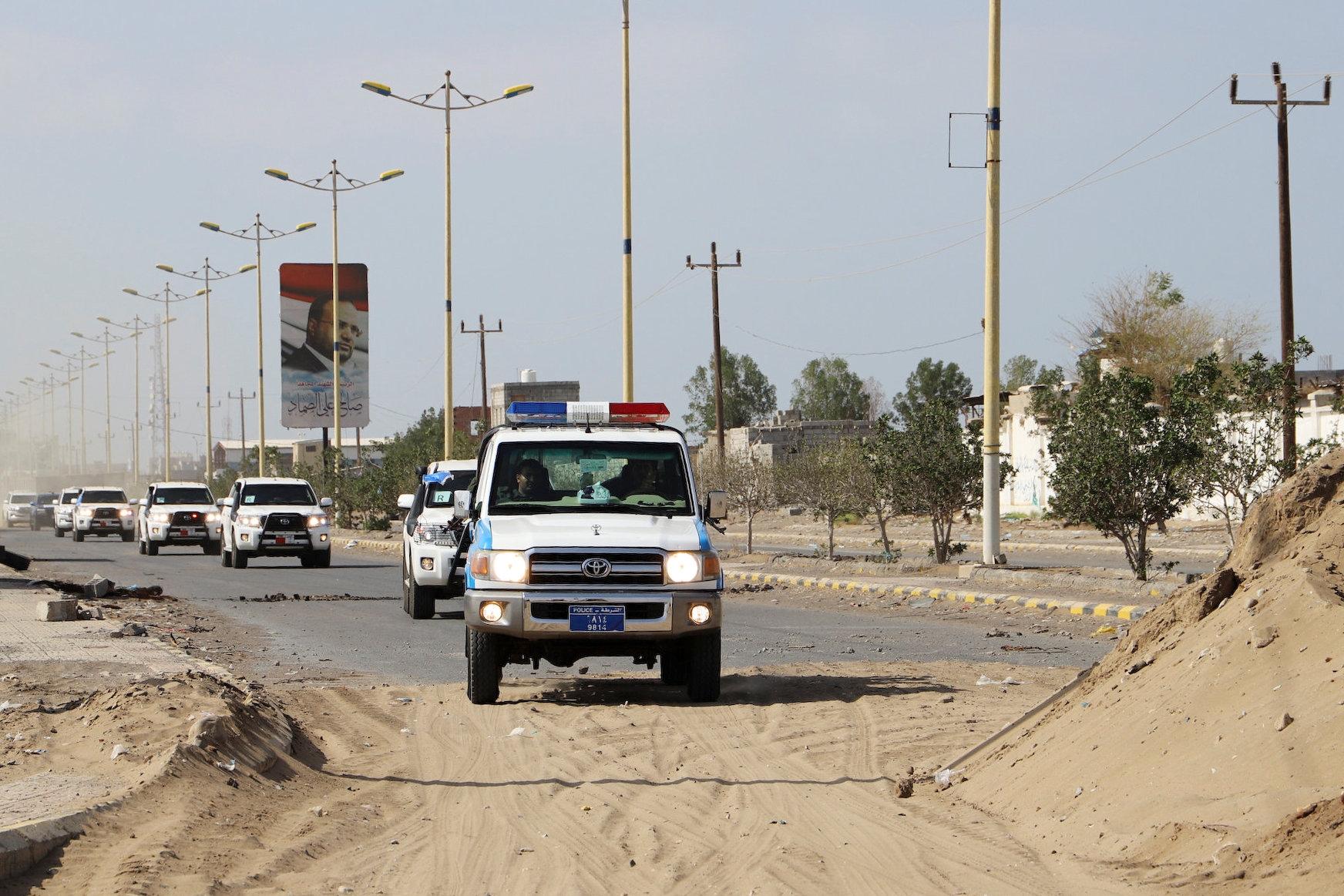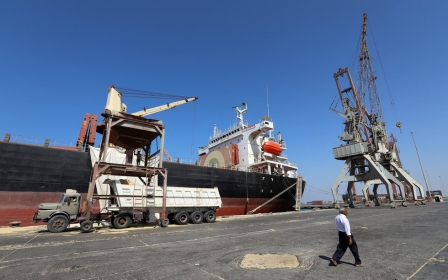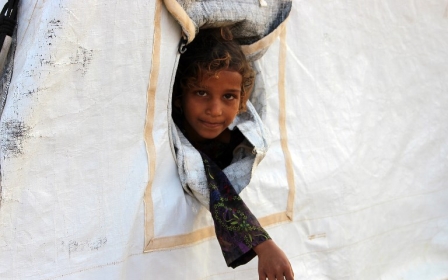Hungry Yemenis impatient as grain sits in silo pending test results

It was finally some good news out of Yemen.
For nearly six months, enough grain to feed 3.7 million Yemenis for a month sat in a warehouse in Hodeidah as fighting between the Houthis and the Saudi-led coalition continued in the port city.
In a country where more than 8 million are on the verge of famine, the inaccessible food just kilometres from refugee camps seemed a cruel joke and there were concerns that the stock had spoiled.
Then on 27 February, when aid workers gained access to the mill and found the 51,000 tonnes of wheat, local residents greeted the news with expectation, eager that food might be on its way.
There were reports that the wheat had been infested by weevils and that much of it was rotten, but World Food Programme (WFP) officials said they had anticipated the pests and the wheat could be fumigated and “reconditioned”.
New MEE newsletter: Jerusalem Dispatch
Sign up to get the latest insights and analysis on Israel-Palestine, alongside Turkey Unpacked and other MEE newsletters
But more than a week later, Yemenis struggling to feed their families in Hodeidah are asking why the grain hasn’t been distributed with rumours flying that the stocks are too rotten for repair.
On Friday, Abeer Etefa, senior regional communications officer for the WFP in the Middle East and North Africa, told Middle East Eye that the organisation is awaiting test results to determine the quality of the wheat and how much can be consumed.
“If the wheat stocks are deemed unfit for human consumption, it’s something easy to announce,” she said.
The test results are expected early next week, she said, but even then there are other obstacles.
“We have a lot of concerns and worries not just about the quality of the wheat, but also if we have access to this wheat today, the mills are not yet working or operational,” she said.
But that news doesn't seem to have gotten to local people who told MEE they fear the worst.
Khalid Hasan is one of those waiting on the wheat from the Red Sea Mills. The father of five lives in a small hut on the outskirts of the city. He thrived as a fisherman, but stopped going to sea after the war broke out in 2015 because it became too dangerous.
He has struggled to find other work in Hodeidah, bringing home around $2 per day or less, and said he now depends on aid organisations to feed his family, including two-year-old Ayyat, his fifth child, who has severe malnutrition.
In the past two months, they haven’t received any aid and Hasan said they are desperate.
“I call on organisations to double their work to target all the needy people in Hodeidah,” Hasan said. “The war deprived us from everything beautiful and we hope it will not deprive us from aid food. If not for the aid we would have starved to death.”
Tallal al-Raimi, a 40-something resident of Hodeidah, fled with his family from the city's Al-Hawk district during fighting last June and landed in the city centre.
"Since I have arrived, I received just one food basket in August and then, I did not receive any aid at all," Raimi told MEE.
Like Hasan, he once worked as a fisherman, but could no longer squeeze a living at sea with the war and now depends on neighbours to feed them.
“I hope that organisations provides me with enough food so we could overcome the current suffering,” Raimi added.
Middle East Eye delivers independent and unrivalled coverage and analysis of the Middle East, North Africa and beyond. To learn more about republishing this content and the associated fees, please fill out this form. More about MEE can be found here.





